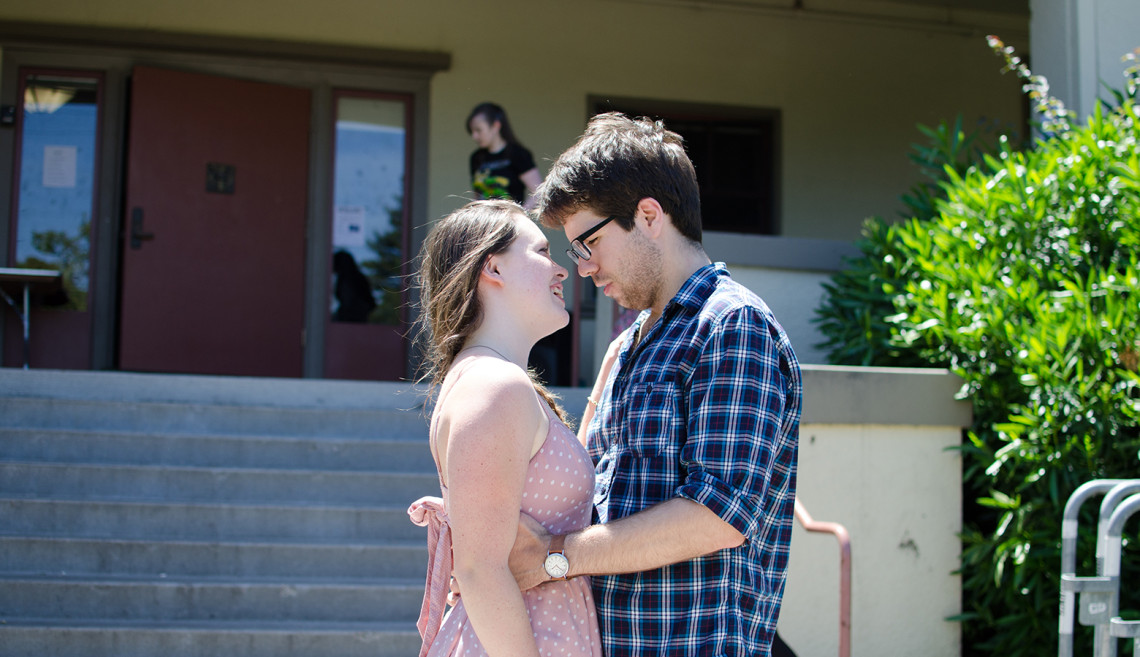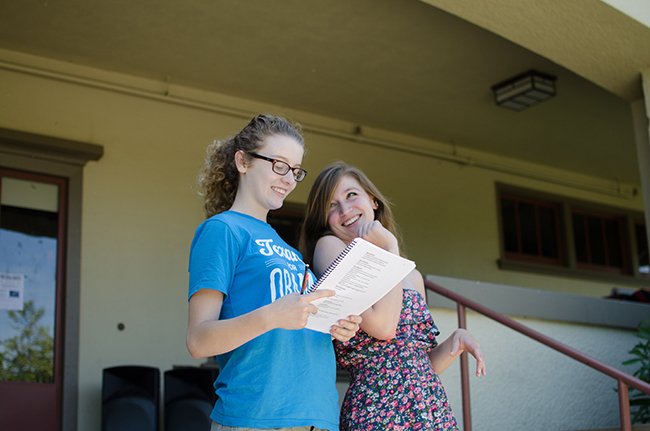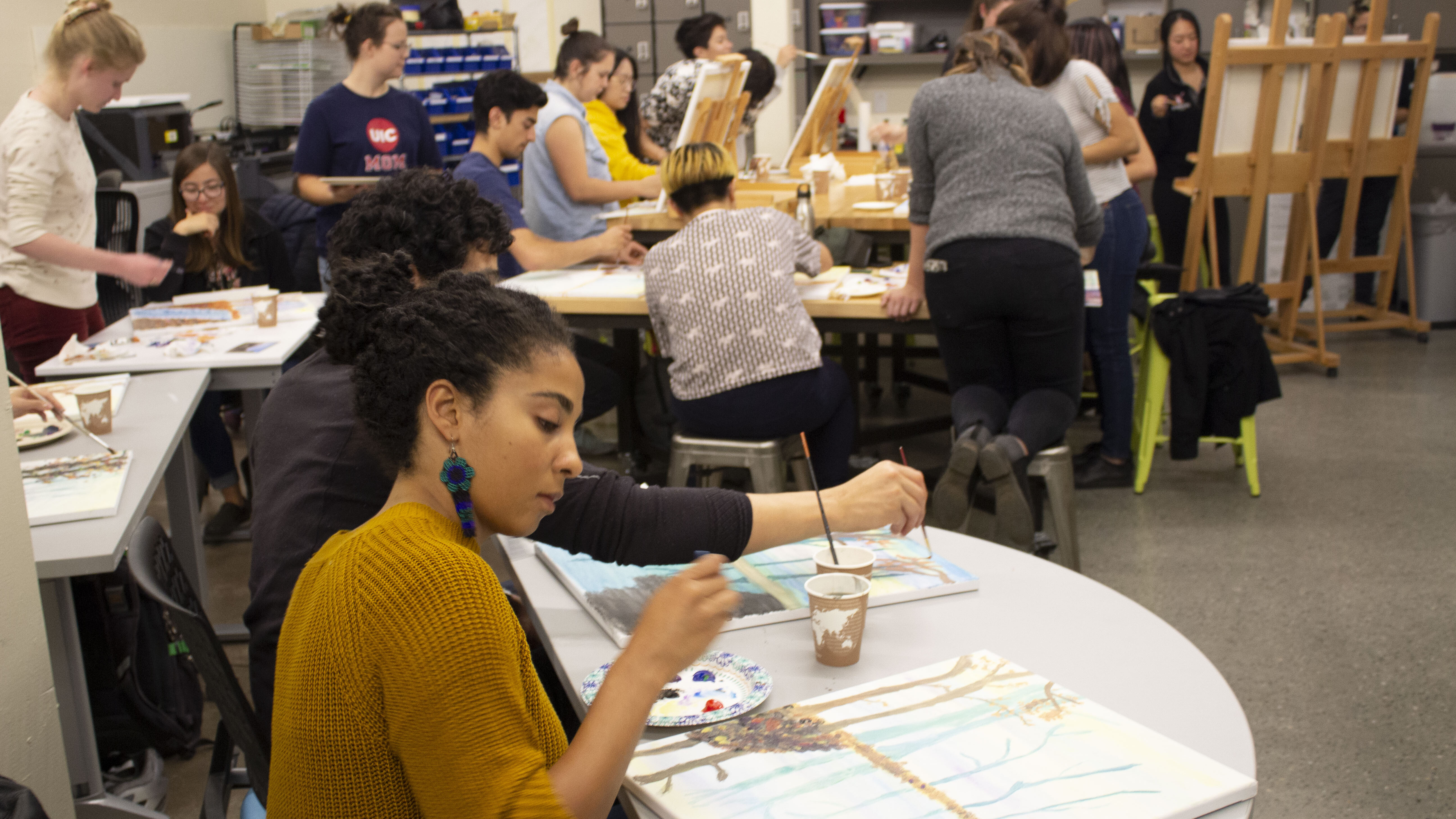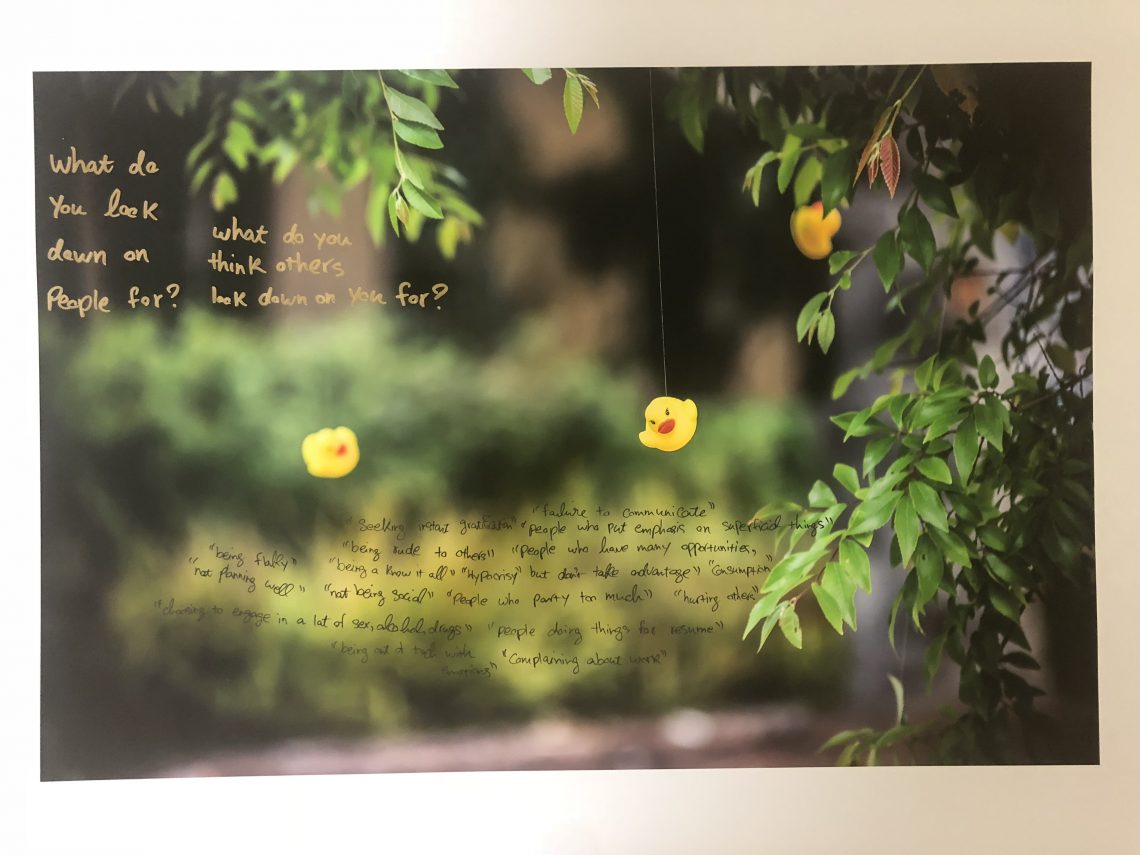
Wit and Wordplay Take Center Stage in StanShakes’ Love’s Labour’s Lost
Spring (quarter!) is in the air… The Stanford Shakespeare Company’s twenty-first show is staged where many Stanford undergraduates might find themselves on a good weekend: the front porch of the Phi Kappa Psi fraternity house.
Performing the show at an actual fraternity house aligns with StanShakes’ history of presenting high-quality, free Shakespeare shows in uniquely Stanford locations. Past locations have included the old Terman fountain, the Cantor Arts Center, and the oak tree amphitheater outside Huang Engineering.
This week only, through the generous support of ASSU Special Fees and a Stanford Arts Institute Spark! Grant, StanShakes blends PG-13 humor and poignancy in their production of Love’s Labour’s Lost.
One of Shakespeare’s earliest plays, Love’s Labour’s Lost is riddled with intricate references and lengthy, sophisticated wordplay. Director Camille Brown’s main challenge (and labour of love!) was to sift through these plentiful puns and allusions to make a complex text accessible and entertaining to a twenty-first century audience, particularly Stanford students.
I believe that this is one of the only shows in Shakespeare that presents love stories honestly.
Brown found personal inspiration to set Love’s Labour’s Lost in a modern, collegiate setting through the example of her sister and brother-in-law, who met as Stanford undergraduates. Brown explains that Love’s Labour’s Lost “captured a lot of the truths I saw in their developing relationship in a realistic, hilarious way.”
True to Brown’s modern aesthetic, Love’s Labour’s Lost offers unique visual and auditory surprises that might be unexpected for a Shakespeare show, including a creative sequence that Professor David Riggs “has never seen done before” in a production of this play. For StanShakes, these “brave choices” are all part of making Shakespearean performances relevant and enjoyable to a modern audience, while still conveying the emotive power of the text.
StanShakes also aims to help bring Shakespeare into the lives of a younger audience. Actress and Outreach Coordinator Nora Tjossem ’15, coordinates visits to local middle and high schools, during which Company members work in small groups with students, sharing tips for comprehending Shakespearean text and highlighting aspects of performance and theater.

For Company members, who juggle being involved in a main-stage performance along with academics and other endeavors, volunteering for Outreach is an “extra,” but valuably so. Tjossem notes the dedication from Company members is proved with high participation: “This spring quarter alone, we’ve been to four area schools, hosted eight workshops, and have taught workshops for a variety of ages at the Splash program on campus.”
As the organizer of these visits, Tjossem is especially passionate about these early-morning, volunteer excursions, noting that “StanShakes is strongly of the opinion that Shakespeare is not too difficult or “highbrow” for any age, background, or level of education, which is why we seek to bring these centuries-old words to life with the energy and enthusiasm of our Shakes family.” A portion of donations from Love’s Labour’s Lost will be used to purchase materials to keep the Outreach program growing and thriving.
Meanwhile, for today’s young adults wrangling rigorous academics, growing up into adulthood, and perhaps discovering budding romances, Love’s Labour’s Lost is poised to strike a personal note, using the comedy of realistic situations to offer a message of resilience. As Brown notes, “I believe that this is one of the only shows in Shakespeare that presents love stories honestly. They don’t happen in a vacuum and sometimes life interrupts at the worst possible times, but that doesn’t mean all hope is lost in the process. Beautiful things sometimes can’t express themselves in poetry….but can come out of unexpected breaks and mature decisions that are really tough to make.”
Love’s Labour’s Lost
May 22-26 2013
8:00 pm – 10:00 pm
Phi Kappa Psi House
learn more //
Q&A with Director Camille Brown
Stanford Arts: What was your inspiration for this play to be in a modern, collegiate setting?
Camille Brown (director): I chose to set this play in a modern, collegiate setting because I wanted to make this story accessible to a Stanford audience. The plot and premise of Love’s Labour’s Lost centers on experiences that ring true to what I’ve observed in my two-and-a-half years at Stanford and I wanted to find a way to present those experiences in a show that would encourage people unfamiliar with Shakespeare to discover the truth behind the text in a comprehensive, realistic, and hilarious way.
SA: Does this play have any particular personal meaning for you?
CB: It does. I had the privilege of watching my older sister navigate the Stanford dating scene only to eventually find a wonderful guy I’m happy to call my brother-in-law today and what struck me about the plot of Love’s Labour’s Lost was that it captured a lot of the truths I saw develop in their relationship in a realistic, hilarious way.
Despite the show’s title, I believe that it is one of the only shows in Shakespeare that presents love stories honestly: They don’t happen in a vacuum and sometimes life interrupts at the worst possible times, but that doesn’t mean all hope is lost in the process. Beautiful things sometimes can’t express themselves in poetry and can come out of unexpected breaks and mature decisions that are really tough to make.
I saw that happen up close and personal from the beginning with my sister and brother-in-law. I was incredibly excited when I encountered it in a live performance of Love’s Labour’s Lost on a sophomore college trip to the Oregon Shakespeare Festival. Now, I’m beyond thrilled to share the truth I connected with in the story with everyone who comes to see the show.























